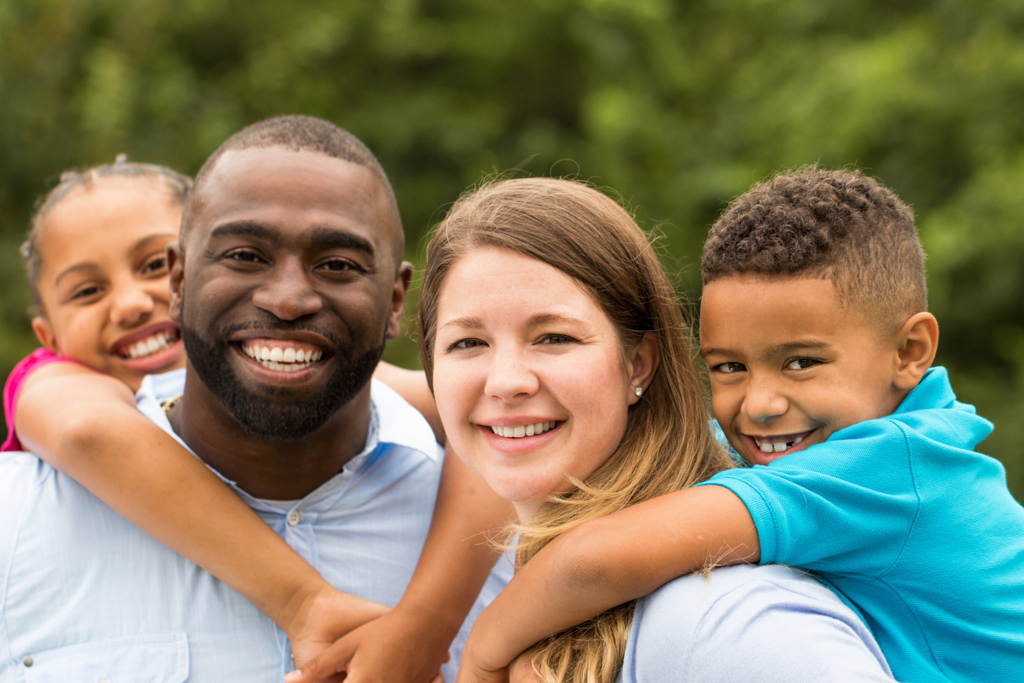Child welfare professionals are uniquely positioned to connect families with tailored, equitable resources that fit their individual needs. Diverse families encompass many groups, including families of color and LGBTQIA2S+ families. Every family has its own unique challenges, strengths, and needs. Diverse identities are part of what makes each family different.
Equitable access to services is key to serving diverse families. Being mindful of potential barriers—such as location or transportation access—and cultural context, can help child welfare professionals more effectively serve diverse families.
Understanding the systemic barriers that contribute to the racial and economic disparities in child welfare is essential to dismantling them. Responsively serving families includes addressing conscious and unconscious bias. Building a relationship with the family to learn about their needs and culture is paramount. A trauma-informed, diverse workforce can have the tools and perspectives necessary to meet families where they are and begin to dismantle systemic barriers.
Being aware of what service providers are available and understanding the specific needs of a family enables child welfare workers to effectively connect families with the services they require.
Adjust the filters below to refine your list of resources.
Can’t find what you need in the filtered results? Try searching our Library catalog to access a large selection of peer-reviewed journal articles, evaluation reports, Children’s Bureau grant materials, research studies, and more.
Featured
Episode 69: Engaging Indigenous Families and Communities
Listen to a podcast episode that shares insight from the National Native Children's Trauma Center for child welfare caseworkers and agencies that are working with or will work with indigenous communities to support children, youth, and families.
Assessing the Cultural Responsiveness of Support Services
Learn how to provide culturally responsive services to families from diverse racial and ethnic backgrounds and find tools tools from AdoptUSKids that agencies can use to help assess the cultural competence of their services.
Child Welfare Practice to Address Racial Disproportionality and Disparity
Explore factors that contribute to racial and ethnic disproportionality and disparity in the child welfare system. The publication also outlines strategies to assist professionals with addressing these issues and decision-making along the continuum.
The Importance of a Trauma-Informed Child Welfare System
Learn about the importance of cultivating a child welfare system that recognizes and responds appropriately to trauma. The brief concludes by highlighting how cross-system collaborations can help to promote trauma-informed child welfare practice.
Working With LGBTQ+ Families in Foster Care and Adoption
Learn how to can expand cultural competence and skills engaging parents who identify as LGBTQ+/Two-Spirit and same-gender or gender-diverse couples. It also examines laws and policies and provides tips to effectively engage this vital community.
Supporting LGBTQ+ Youth: A Guide for Foster Parents
Learn about LGBTQ+ (lesbian, gay, bisexual, transgender, questioning, and other diverse identities and expressions, including Two-Spirit) youth in foster care, unique risks they face, and the role that foster parents can play in reducing those risks.
Equity in Action: Prioritizing and Advancing Racial Equity and Support for Underserved Communities
Read an information memorandum that outlines an unequivocal commitment to advancing racial equity for all and encouraging grantees to assess and address how its programs and policies may perpetuate systemic barriers for children and families of color ...Read More
Separating Poverty From Neglect in Child Welfare
Explore the overlap among families experiencing poverty and those reported to the child welfare system for neglect, the societal context within which poverty and neglect exist, and strategies for preventing and addressing both poverty and neglect.
Protecting the Rights and Providing Appropriate Services to LGBTQIA2S+ Youth in Out-of-Home Care
Review State laws and policies that are directed toward reducing the negative experiences of LGBTQIA2S+ (lesbian, gay, bisexual, transgender, questioning, intersex, asexual, Two-Spirit, or other gender or sexual identity) youth in care.
